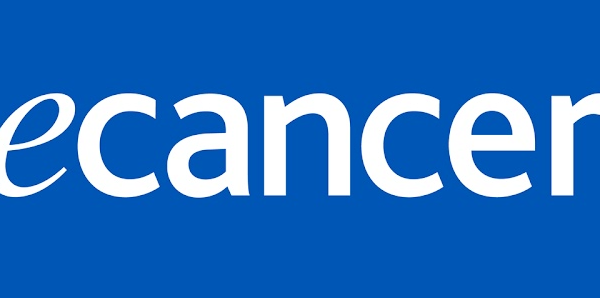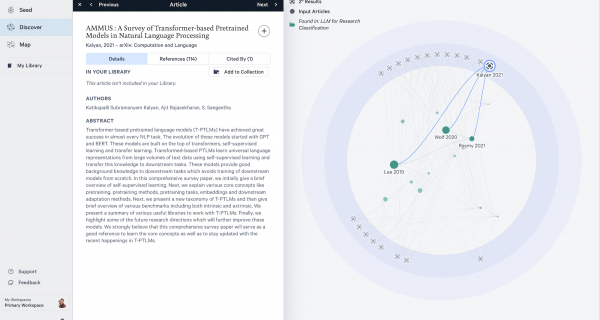Unlocking a World of Knowledge: Discovering the Top 15 Scholarly Databases
A Comprehensive Guide to the Top Scholarly Databases for Researchers and Academics

Scholarly databases are online resources that provide access to a wide range of scholarly literature, including research articles, conference proceedings, and book chapters. These databases are essential tools for students, researchers, and academics who need to stay up-to-date with the latest developments in their fields. In this blog post, we will explore some of the most popular scholarly databases available today.
Discovering the Top Scholarly Databases
-
JSTOR
JSTOR is a digital library that provides access to thousands of academic journals, books, and primary sources. It is particularly useful for humanities and social science research, with a focus on history, sociology, and political science. JSTOR’s archives contain millions of articles dating back to the 17th century, making it an invaluable resource for historians and other scholars.
-
Google Scholar
Google Scholar is a free search engine that indexes scholarly literature from a wide range of sources, including academic publishers, universities, and scholarly societies. It allows users to search for articles, theses, books, and conference papers, as well as patents and court opinions. While Google Scholar is not as comprehensive as some of the other databases on this list, it is a useful tool for conducting quick searches and finding open-access articles.
-
Scopus
Scopus is a large abstract and citation database that covers over 23,000 academic journals, as well as conference proceedings, books, and patents. It provides tools for tracking citation metrics, analyzing research trends, and identifying potential collaborators. Scopus is particularly useful for researchers in the fields of science, technology, engineering, and medicine.
-
Web of Science
Web of Science is a citation index that covers over 12,000 scholarly journals, as well as conference proceedings and books. It provides tools for analyzing citation patterns, identifying influential articles, and tracking research trends. Web of Science is particularly useful for researchers in the natural sciences, social sciences, and humanities.
-
Project MUSE
Project MUSE is a digital library that provides access to over 700 academic journals and over 65,000 books from over 200 publishers. It is particularly useful for researchers in the fields of literature, history, and the arts. Project MUSE’s archives contain articles and books dating back to the 19th century, making it an invaluable resource for scholars interested in the history of their fields.
-
PubMed
PubMed is a free search engine that provides access to over 32 million citations for biomedical literature, including articles from over 5,600 biomedical journals. It is maintained by the National Library of Medicine and the National Institutes of Health. PubMed is particularly useful for researchers in the fields of medicine, biology, and public health.
-
ProQuest
ProQuest is a large database that provides access to over 90,000 academic journals, magazines, and newspapers, as well as dissertations and theses from around the world. It is particularly useful for researchers in the fields of social science, history, and the humanities. ProQuest’s archives contain millions of articles dating back to the 17th century, making it an invaluable resource for historians and other scholars.
Scholarly databases are essential tools for anyone engaged in academic research. The databases listed above provide access to a wealth of scholarly literature from a wide range of fields, making them invaluable resources for students, researchers, and academics. Whether you are looking for articles, books, or other types of scholarly content, these databases are sure to have what you need.
Discovering the Top Free Scholarly Databases
Accessing scholarly research can often come at a cost, with many databases requiring expensive subscriptions or pay-per-view fees. However, there are also many databases where you can access research for free. In this section, we will explore some of the top scholarly databases that offer free access to their content.
-
OA.mg
OA.mg is a search engine for academic papers, specializing in Open Access. The OA.mg database consists of over 250 million scholarly articles, of which approximately 37 million are available with full-text PDFs. OA.mg covers all subject areas, including science, technology, medicine, social sciences, and humanities,
-
Semantic Scholar
Semantic Scholar is an artificial intelligence-powered search engine that was created by the Allen Institute for Artificial Intelligence. It aims to provide a more efficient and effective way of searching for scholarly research by using natural language processing and machine learning techniques to understand and extract meaningful information from research articles. Semantic Scholar indexes and provides access to over 190 million articles across various disciplines, including computer science, medicine, biology, and social sciences.
-
Zenodo
Zenodo is a research data repository that allows researchers to store, share, and cite research outputs, including datasets, software, and publications. It was created by OpenAIRE and CERN and is operated by the European Organization for Nuclear Research (CERN).
-
Directory of Open Access Journals (DOAJ)
DOAJ is a community-curated online directory that indexes and provides access to high-quality, peer-reviewed open-access journals. It covers a wide range of subjects, including science, technology, medicine, social sciences, and humanities. DOAJ currently lists over 16,000 open-access journals from over 130 countries, making it one of the largest and most comprehensive databases of its kind.
-
arXiv
arXiv is a free electronic archive and distribution service for research articles in the fields of physics, mathematics, computer science, quantitative biology, quantitative finance, and statistics. It provides access to over 1.8 million e-prints, including preprints and post-prints of research articles. arXiv is maintained by Cornell University Library, and its content is openly accessible to all users.
-
PubMed Central
PubMed Central is a free full-text archive of biomedical and life sciences journal literature at the U.S. National Institutes of Health’s National Library of Medicine (NIH/NLM). It provides access to over 6 million articles from over 5,600 biomedical journals, including many open-access journals. PubMed Central is a valuable resource for researchers in the fields of medicine, biology, and public health.
-
OpenDOAR
OpenDOAR is an online directory of academic open-access repositories. It provides access to over 4,000 institutional and subject-based repositories from around the world, containing millions of research outputs, including journal articles, conference papers, and theses. OpenDOAR is a useful resource for researchers looking to find open-access versions of articles that may otherwise be behind paywalls.
-
CORE
CORE (COnnecting REpositories) is a free, full-text, interdisciplinary, and global repository of research articles, theses, and dissertations. It aggregates content from open-access repositories and journals, making over 240 million articles available to search and access for free. CORE covers a wide range of subjects, including science, technology, medicine, social sciences, and humanities.
In conclusion, while many scholarly databases require expensive subscriptions or pay-per-view fees, there are also many databases that offer free access to their content. These databases provide valuable resources for students, researchers, and academics looking to access scholarly research without breaking the bank.
If you want to see how OA.mg compares to other databases click here.





















































































